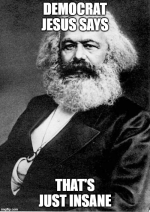The Big Bang was the reaction to Satan's failed rebellionFeel free to give convincing evidence there was something before the Big Bang.
The universe had a definite starting point at 13.7 billion years ago, and the Guth-Vilenkin theorem demonstrates that an expanding universe has to have a definite spacetime boundary in the past - aka, it can't be infinitely old.
There was nothing before the Big Bang, and even if one speculates about a multiverse, there has to be an origin point.
You are using an out of date browser. It may not display this or other websites correctly.
You should upgrade or use an alternative browser.
You should upgrade or use an alternative browser.
Ignorance and the Bible
- Thread starter domer76
- Start date
Satan is also an invention. A myth. The fear thing is a powerful weapon.The Big Bang was the reaction to Satan's failed rebellion
So is an omniscient god who knows all, including the future.Grace is Christianity 101
You avoided the point about your god’s “plan”. Either he has one or he doesn’t. If he has one, changing his mind to optionally extend Grace is problematic. If Grace is in his “plan”, it was pre-ordained and isn’t really Grace. He knew it was coming all along.
Christians have to perform so many theological gymnastics to solve the problems they create. The Trinity, however, is the most egregious example.
Into the Night
Verified User
BSing your way with buzzwords won't work, Sybil.Right, it doesn't prove how the universe originated.
It proves that there had to be a spacetime boundary condition in the past, but it makes no statement on how everything originated.
However you slice it, there seems to have been an origin point.
Nothing is literally nothing. No time, no energy, no space, no dimension, no physical laws.
The bottom line is from the perspective of the atheist and the physical materialist, a lawfully ordered universe blinked into existence from inanimate nothingness and random chance.
That is as big a miracle as anything in the New Testament.
This is an article by Aleksandr Valenkin, one of the authors of the theorem
The answer to the question, “Did the universe have a beginning?” is, “It probably did.” We have no viable models of an eternal universe. The BGV theorem gives us reason to believe that such models simply cannot be constructed.When physicists or theologians ask me about the BGV theorem, I am happy to oblige. But my own view is that the theorem does not tell us anything about the existence of God. A deep mystery remains. The laws of physics that describe the quantum creation of the universe also describe its evolution. This seems to suggest that they have some independent existence.What exactly this means, we don’t know.- Aleksandr Valenkin

The Beginning of the Universe | Alexander Vilenkin | Inference
Despite the perplexing questions associated with the universe having a beginning, the BGV theorem shows it must have had one. Alexander Vilenkin describes the theory of quantum creation, and why it means that the universe both could have a beginning and be uncaused.web.archive.org
I'll let him know,you feel that waySatan is also an invention. A myth. The fear thing is a powerful weapon.
You're confusing organized religion with a personal relationship with Jesus through the Holy SpiritSo is an omniscient god who knows all, including the future.
You avoided the point about your god’s “plan”. Either he has one or he doesn’t. If he has one, changing his mind to optionally extend Grace is problematic. If Grace is in his “plan”, it was pre-ordained and isn’t really Grace. He knew it was coming all along.
Christians have to perform so many theological gymnastics to solve the problems they create. The Trinity, however, is the most egregious example.
Don’t bother. Nobody’s listening.I'll let him know,you feel that way
Got it. There is no “plan” by your deity, right?You're confusing organized religion with a personal relationship with Jesus through the Holy Spirit
But, you have just described 2 parts of the Trinity. That other concoction I referred to.
What " position "?
OMG. Seriously. You slag so many people that you can't even keep track? Wow. You must be proud of yourself.
Well that's pretty convincing.The Big Bang was the reaction to Satan's failed rebellion
You're confusing organized religion with a personal relationship with Jesus through the Holy Spirit
Without organization how does one avoid simply making up a god to suit one's own preferences?
“I distrust those people who know so well what God wants them to do because I notice it always coincides with their own desires.”
― Susan B. AnthonyWhich explains why so many atheists belong to atheist organizations.Without organization how does one avoid simply making up a god to suit one's own preferences?
“I distrust those people who know so well what God wants them to do because I notice it always coincides with their own desires.”
― Susan B. Anthony

National Atheist and Related Organizations — Triangle Freethought Society
Triangle Freethought (TFS) is a chapter of the Freedom From Religion Foundation and an affiliate of American Atheists and the American Humanist Association. For your convenience in locating organizations on the national level, we provide these links. (Not an endorsement or affiliation.)
Not my words.BSing your way with buzzwords won't work, Sybil.
The words of theoretical physicist Aleksandr Valenkin, one of the authors of the BGV theorem.
The answer to the question, “Did the universe have a beginning?” is, “It probably did.” We have no viable models of an eternal universe. The BGV theorem gives us reason to believe that such models simply cannot be constructed.
Aleksandr Valenkin
That leaves a question for atheists like you, and agnostics like me: how could a lawfully ordered and finely-tuned universe blink into existence by inanimate random chance?"But my own view is that the theorem does not tell us anything about the existence of God. But a deep mystery remains."
Aleksandr Valenkin
Which explains why so many atheists belong to atheist organizations.
Huh, not familiar with any atheist "organizations". Thanks for the link.
Unconvincing. I don't see anything about Satan in Genesis 1.The Big Bang was the reaction to Satan's failed rebellion
I prefer physics.
But at the level of poetry and metaphor, the description of the universe's beginning in both Genesis 1/2 and in the Daodejing is actually pretty decent.
the description of the universe's beginning in both Genesis 1/2 and in the Daodejing is actually pretty decent.
The Kalevala beginning story is better.
Another reason why I know you are young. You're more than welcome.Huh, not familiar with any atheist "organizations". Thanks for the link.
FWIW, I used to be on a Brit atheist forum "Secular Cafe". Even as an agnostic, I tended to piss off the handful atheists who were jerking each other off on the forum. It was interesting but eventually collapsed. It appears it's now on Facebook.

Secular Cafe
Secular Cafe. 186 likes. A formerly existing messageboard that catered to mostly secular people. Its former users have moved
 www.facebook.com
www.facebook.com
Another reason why I know you are young.
How old do you think I am? And why is it important to know my age and that I be young?


